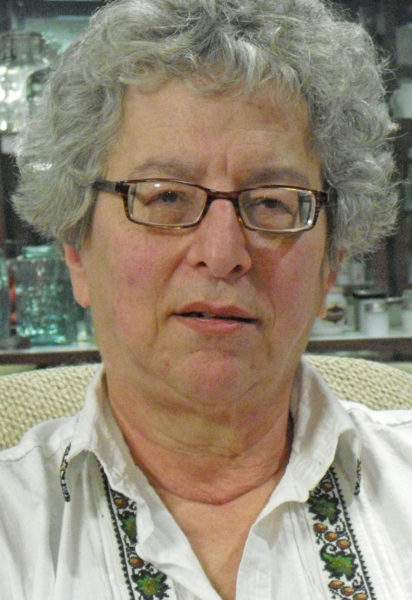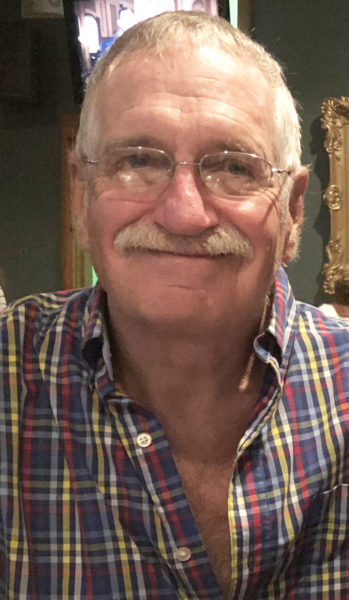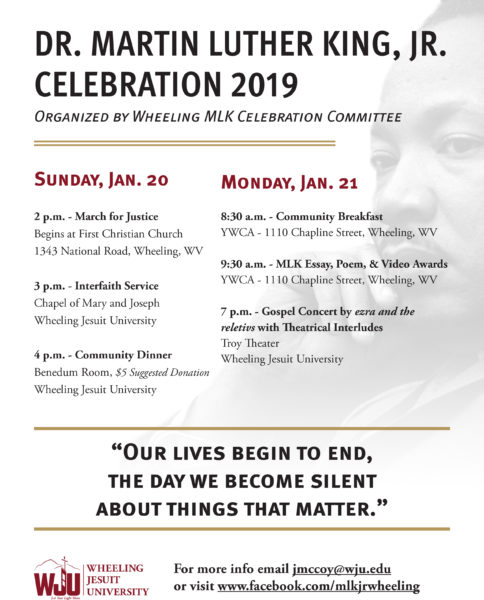Editor’s note: Among the events in this weekend’s observance of Martin Luther King Jr. Day, Wheeling residents Tim Cogan and Elissa Gross will be honored for decades of commitment to social justice. Here is their story.
Elissa Gross would be really good at the Kevin Bacon game. The Wheeling resident has a mind like a search engine.
Need an ultra-Orthodox rabbi who lives part-time in Israel and happens to be a world-renown expert on addiction? She can get him. Need to network among old-school preachers in the Deep South? Been there, done that, stayed for the chicken dinner. Need to locate a World War II soldier who liberated the very concentration camp in which her Hungarian-born father spent the Holocaust? She did it. Without leaving the city limits.

Gross knows people. Many, many people. And, in her big-tent view of humanity, the differences and the similarities are equally valued.
“I treat everyone the same. I think it’s important to maintain the dignity of every human being,” Gross said of the similarity side of the coin. As to the differences: “Of course, I’m not color blind … (It’s those) nuances of the personalities, the cultural differences, the racial differences that make for a much richer (world).”
This is the kind of thinking that caused the city’s Martin Luther King Celebration Committee to name Gross as the Rosa Parks Award winner for 2019. Gross and Wheeling attorney Tim Cogan, who will receive the committee’s MLK Award, will be honored at the MLK Interfaith Prayer Service at 3 p.m. Sunday in the Chapel of Mary and Joseph at Wheeling Jesuit University.
“Wheeling seems exemplary in that both whites and blacks take leadership on this issue (social justice) and work together,” said Jamey Brogan, who co-chairs the celebration with fellow WJU employee Javier McCoy, the university’s diversity and inclusion coordinator. “We are a small community.”
Brogan said both Gross and Cogan have shown a lifetime of dedication to promoting peace and harmony in the community, but have also addressed broader issues including racial discrimination, labor grievances, disability and poverty. Their selection also reflects the interracial committee’s desire to raise awareness of religious and ethnic prejudice, as well as racial justice, in light of 2018’s synagogue shooting in Pittsburgh, he added. Gross is Jewish. Cogan is Roman Catholic.
This breadth is part of what King envisioned, Brogan summed up. “In many instances, including the March on Washington, white religious leaders were also part of the civil rights movement, and MLK Jr. spoke on inclusiveness and desired broad involvement among various religious and racial groups.”
Full Circle
A Wheeling resident in her youth and retirement, Gross’ eclectic career years kept her on the move between more urban locations. Chicago, Pittsburgh, Cleveland, Ft. Lauderdale, Memphis, Frederick, Md.
Her work (and extensive volunteerism) has been equally varied, although always linked to social justice. In Chicago, the fluent speaker of Spanish helped Latino immigrants get a steady footing — and worked to establish a museum for Holocaust survivors in nearby Skokie on the side. In Maryland, she lobbied U.S. senators. In West Virginia’s coalfield counties, she fought for both diversity of and access to art.
Working in the Deep South for more than a decade, she produced a documentary for public television. One year, she gave so many talks on personal finance and debt reduction (more than 400), her Julia Child-like voice not only lost its flutey ups and downs, it was plain gone. “The doctor said there was no choice but to be still,” she added with a shrug.
A number of those talks were behind the pulpits of African-American churches, a situation that raised eyebrows in some arenas.
“They invited me,” Gross said, arguing that relationships-in-the-forging trumped the fact she is a white Jewish woman. “Of course, I’m going to go, and I’ll stay for the fried-chicken dinner after. They called me Sister Gross. I didn’t know anything of that. It was a Southern thing.”
Seeing more overt racism in the South than she had growing up in Wheeling, Gross also began to understand how blessed she was. “I look back on (childhood) and realize I could have been raised in fear,” she said of not only being a religious minority but the child of a Holocaust survivor.
Her father, Miklos Gross, set an example of engagement instead of retreat. When fellow Hungarians arrived in Wheeling to work in steel mills, it was he who openly displayed his ethnicity and faith while teaching many of them English.
“You can’t hold yourself back. You can’t let others intimidate you from participating,” Gross said of preferring his example to that of an aunt whose Holocaust trauma caused her to spend a lifetime “flying under the radar” in Australia.
A grad of the former Triadelphia High School, Case Western Reserve University and the University of Chicago, Gross has also taught at the college level and the pre-school level. For the latter, she recently engaged tots at Laughlin Memorial Chapel in a re-enactment of the pivotal moment when Rosa Parks declined to vacate her bus seat for a white passenger.
“We lined the chairs up in rows, just like in a bus,” Gross remembered with an impish smile. While she didn’t mention it in the interview, perhaps it is not surprising that Gross actually met Parks.
“When I recognized her at a Little Rock restaurant having lunch with her friend, Daisy Bates (an advocate of the Little Rock Nine at Central High School), I went over to let both of them know how much it meant to me to meet them,” Gross is quoted as saying in a committee press release. “I also suggested they not … eat too much because of the honorary banquet for Ms. Bates being held later that day! They laughed, and I went back to my table.”
To be associated with Parks by the award is a pleasure, Gross said. “I’m very honored, and I’m very humbled. I like to think that it’s a culmination of years of advocacy.”
A Steady Course
MLK awardee Tim Cogan has had a more linear path — mostly residing in Wheeling since attending college at Wheeling Jesuit. But, the Cleveland native’s work portfolio as a West Virginia University-educated attorney and civil-rights activist is equally diverse.
He has worked for Miners for Democracy in Montana and served as executive director of the Wheeling Human Rights Commission. His law practice has focused on civil rights, employee rights and the union side of labor litigation. Since 1982, he has been a partner of the firm now known as Cassidy Cogan Shapell & Voegelin.
“Dr. King was interested in labor and employment law issues,” he said of being honored to be associated with an award bearing his name. “He (King) was involved in the garbage workers’ strike in Memphis.” Indeed, that strike was King’s last cause before his 1968 assassination.

In line with King’s philosophy, Cogan said he has also enjoyed doing criminal defense and work on behalf of the poor. Those things aren’t race specific, but Cogan said race is often at the bottom of many types of injustice.
“The concept there (in honoring King’s legacy), is that you’re supposed to be treated as an individual as opposed to a stereotype,” Cogan said.
Living that out may mean legal activities. In addition to his practice, Cogan formerly served on the state Ethics Commission and clerked for Judge Arthur Recht in his pivotal public-education case. It can also mean volunteering for Catholic Charities, House of Hagar and various boards and councils at Wheeling Jesuit. Or setting up a scholarship fund. Or teaching. He serves as an adjunct instructor of business law and criminal justice at that same university.
Cogan suspects much of his altruism is linked to his Jesuit education, which began in high school in Cleveland. A branch of Catholicism known for commitment to social justice, the Jesuit philosophy sparked something that keeps him going even when his body grows tired — perhaps when carrying equipment from one volunteer site to another.
“Sometimes I feel unappreciated,” he joked, noting he’s reached an age where it’s not just hauling stuff. A 42-year presence at the Ogden Half Marathon, Cogan acknowledged a girl recently walked past him when he was running at Howard Long Wellness Center. “In my less grumpy moments, I feel unworthy,” he said of receiving the award.
He also feels hopeful.
“I hope that Wheeling will thrive,” Cogan said of a future in which he would love to see people simply be valued as people. “Greater diversity and greater appreciation of diversity is a big part of that.”

• Nora Edinger writes from Wheeling, W.Va., where she is part of a three-generation, two-species household. A long-time journalist, she now writes in a variety of print and e-venues, including her JOY Journal blog at noraedinger.com. Her first work of fiction, a Christian beach read called “Dune Girl,” is available on Amazon Kindle.


